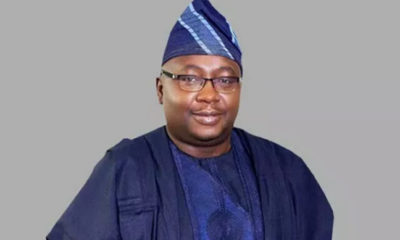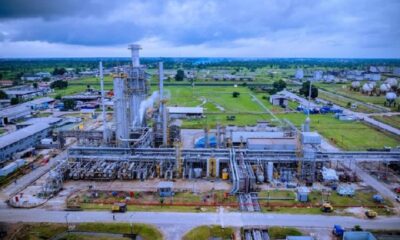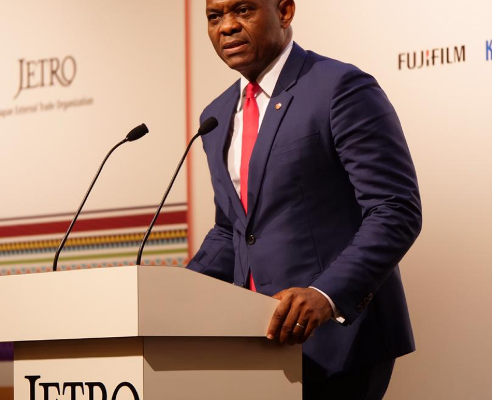Business
Omokri, Followers Bicker on Tinubu’s Tax-Driven Economy
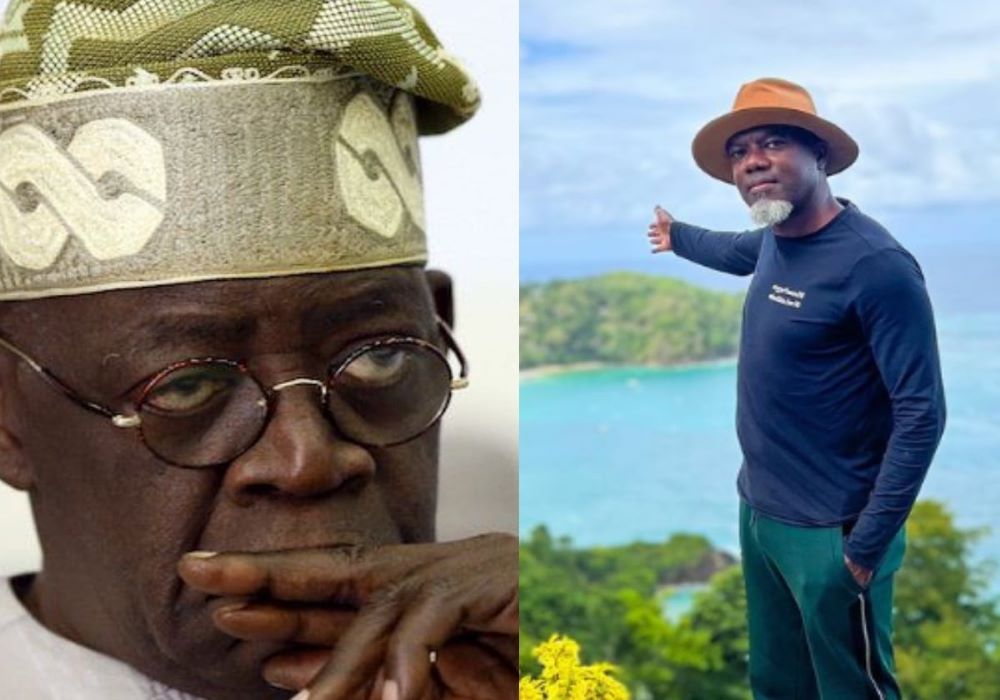
With the first month of President Bola Ahmed Tinubu throwing up a tax-driven, citizen funded economy, activist, Reno Omokri and his followers appear to have been dissecting Tinubu’s economic strategies.
In a move that might be perceived as backing the president, Omokri, who boasts of over 2.3 million followers on Twitter, took to his verified Twitter handle, @renoomokiri to declare that Nigerians should wean themselves of lax lifestyles and face present globl economic realities.
He wondered how a country with one of the highest population growths globally could convince the world that the same citizens multiplying at an alarming rate were being confronted with stifling cost of living.
He tweeted, “We say fuel is expensive. We complain that food is too costly. We cry that ₦1000 Proof of Vehicle Ownership fee is too high. We lament that the cost of living in Nigeria is too high.
“Yet, Nigeria has one of the highest population growth rates on planet Earth. Only few countries, …”.
But one of his followers, Sir Dynamic, @mn_almustapha, countered that uncontrolled population growth had little to do with the populace.
Dynamic charge government with the responsibility of creating systems that will accommodate our population.
“This has nothing to do with the people but the government. The government are the ones responsible to make systems that will accommodate our population, … though Nigerians have share in this situation. Imagine increasing a salary of a man only for him to add wife,” @mn_almustapha, replied.
Omokri and Dynamic tend to agree that citizens’ lifestyles have a telling impact on how the economic policies reflect on the populace.
Consequently, Omokri charged the citizenry to wean itself of the long-held entitlement mentality because Nigeria’s economy had been oil-dependent for so long, while the human numbers had been on the rise.
He added, “Perhaps it is time for us to curb our entitlement mentality. It has gone on for too long. How much taxes do Nigerians pay? We have one of the lowest tax bases on Earth.
“We have an oil income of $30 billion to a population of almost 250 million.
“Stop blaming the government. We, as citizens have to take responsibility. Nigeria is like a cow that everyone is milking, and no one is feeding. It is only a matter of time for that cow to die!”
However, another of his followers, Hon Richard Benjamin, @Nwabrije1 disagreed with Omokri on the tax base. He pointed at the minimum wage, the cost of petrol per litre, and high rate of unemployment as critical areas the government need to look into to achieve balance in the taxes being imposed.
Benjamin tweeted, “Stop saying we have one of the lowest tax base in the world, how about $40 as minimum wage? And a litre of fuel is almost $1. People are suffering, no jobs.”
Recall that the high point of President Bola Ahmed Tinubu’s address on May 29 when he took over the baton from Muhammadu Buhari was the removal of subsidy on Premium Motor Spirit (PMS).
The Federal Government has gone ahead to discontinue funding for professiona bodies, impose consumption tax of 7.5% on other petroleum products, impose annual renewal charges on proof of ownership.
The FG has also tinkered with the monetary policy, which has merged the forex windows, allowing a free market determination of rates. The local currency, the naira, has been at the receiving end since.
Sources at the petroleum sector are already mooting that the pump prices of products would soon reflect the forex situation. This would mean that petrol might move from between N490 – N600 per litre where it is to between N750 – N1100 within the next 100 days.
The proposed 40% increase on electricity charges, which would have come into force on July 1, 2023 has been put on hold.
Biztellers reports that all these taxes are coming into force, without any form of palliative to the citizenry, hence, the public outcry.
Business
PETROAN Commends Sustained Run Of P’Harcourt Refinery
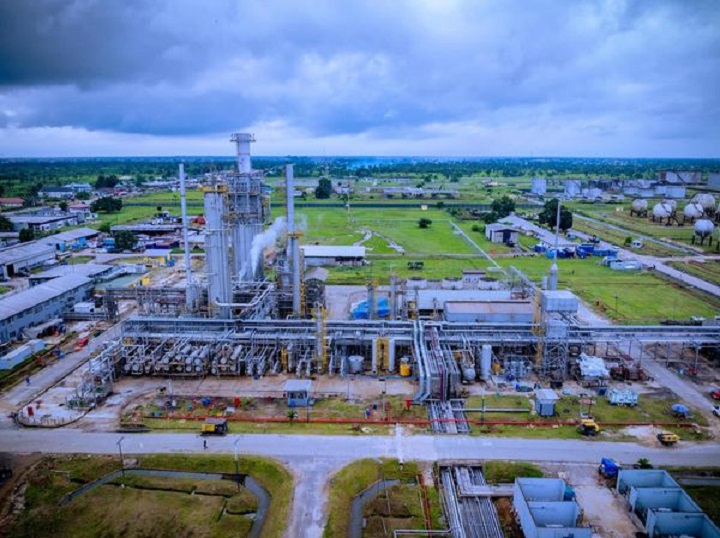
The unbroken run of the Port Harcourt Refining Company (PHRC) has been commended by a relevant stakeholder.
The Petroleum Products Retail Outlets Owners Association of Nigeria (PETROAN) gave kudos to the Nigerian National Petroleum Company Limited (NNPC Ltd) and others for the continuous operations of the refinery since October 2024.
Biztellers reports that the PHRC, which was dormant for over 20 years, was revamped with a loan provided by the Afreximbank. Revamping the PHRC was carried out by Tecnimont Nigeria Limited, a subsidiary of the Maire Tecnimont Group.
The PETROAN through a statement by its Publicity Secretary, Joseph Obele, has come out to praise Tecnimont Nigeria Limited “for their professionalism and expertise in delivering a world-class rehabilitation project.”
The host communities were also commended by the PETROAN, which noted their cooperation and support during the rehabilitation process.
ALSO READ: Gateway Games Will Inspire More Sports Stars In Nigeria – Abiodun
In the statement, the PETROAN noted thus, “The refinery, which was commissioned in October 2024, has been running continuously for 180 days, up to March, a remarkable feat that underscores the effectiveness of the rehabilitation project.”
Consequently, the “PETROAN is pleased to note that its members are currently loading diesel and kerosene from the refinery, while NNPCL retail marketers are loading PMS. This development has not only ensured a steady supply of petroleum products but has also helped to eliminate the circulation of fake kerosene and diesel in the market.”
The PETROAN also lauded the managing director of the Port Harcourt Refining Company, Ibrahim Onoja, for his dedication to ensuring the successful rehabilitation and operation of the refinery.
Higher authorities, including “President Bola Tinubu, for making funds available for the rehabilitation of the refinery; the Minister of State for Petroleum Resources (Oil), Senator Heineken Lokpobiri, for his supervision and guidance throughout the rehabilitation process; the Group Chief Executive Officer of NNPCL, Mele Kyari, for his leadership and commitment to the project; and the Managing Director of NNPC Retail Ltd, Hubb Stockman, for the effective marketing of all the products from the refinery,” were also commended by the PETROAN.
Industry regulator, the Nigerian Midstream and Downstream Petroleum Regulatory Authority (NMDPRA) was also lauded by the PETROAN for its regulatory oversight and support in ensuring the safe and efficient operation of the refinery.
Business
Nigeria Exports Over 2m Barrels Of Jet Fuel To US
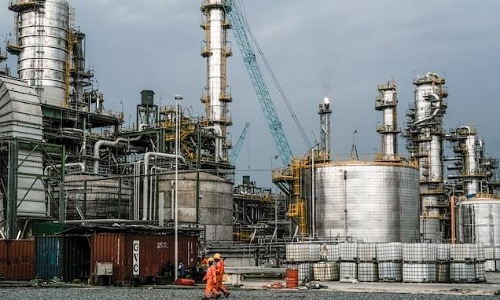
Evidence of the growing influence of the Dangote Petroleum Refinery & Petrochemicals has manifested far beyond Africa and the Middle East, with the United States having imported over two million barrels of jet fuel from the Nigerian based refinery in March.
According to experts, this development should bring immense joy to Nigerians, as it attests to the unparalleled quality of the refinery’s products and the trust that the international community places in the world’s largest single-train refinery.
Going by data from ship-tracking service Kpler, six vessels carrying around 1.7 million barrels of jet fuel from the Dangote Petroleum Refinery arrived at US ports this month.
It was gathered that another vessel, the Hafnia Andromeda, is set to arrive at the Everglades terminal on 29th March with approximately 348,000 barrels of jet fuel.
ALSO READ: NDSF Torch Brightens Edo State
The shipments from the Dangote Refinery, with a capacity of 650,000 barrels per day (bpd) — Africa’s largest — highlight its potential to reshape global fuel trading dynamics, establishing a new swing supplier in the Atlantic Basin.
Biztellers reports that this shipment to the United States follows three cargoes of jet fuel, totalling around 130 million litres, exported from Nigeria to Saudi Arabia by the Dangote Petroleum Refinery.
The refinery has already demonstrated its ability to compete with European refiners on gasoline (PMS) exports, and these jet fuel shipments to the United States could challenge the economics of domestic producers in the world’s largest fuel-consuming nation.
According to Chief Operating Officer of TankTiger, Steven Barsamian, “the surge in demand, partly driven by the influx of supply from Nigeria, is expected to lower jet fuel prices in the US ahead of the peak summer travel season. US jet fuel imports from Dangote Refinery are expected to decrease aviation fuel prices during this period, according to trade analysts and storage brokers. US jet fuel imports in March have averaged around 226,000 bpd, the highest since February 2023, underlining the global demand for products from Dangote Refinery.”
The Dangote Refinery, which commenced production in January 2024, has already exported its products to almost every continent. While the surge in US imports was partly triggered by a maintenance-related shutdown at the Phillips 66 Bayway refinery in New Jersey, analysts believe the choice of Dangote’s products highlights its growing presence in international markets, having successfully competed with European refiners in gasoline exports.
Economist and Chief Executive Officer of the Centre for the Promotion of Private Enterprises (CPPE), Dr Muda Yusuf, stated that the export of jet fuel to the United States by Dangote Refinery is a point of pride for Nigeria, highlighting the quality, standard, and the trust that the international community places in the refinery.
“Nothing could be more prideful for us as a country than the fact that we now have a refinery producing products that can be exported to the United States. It speaks to the quality, standards, and trust that international communities have in Dangote Refinery, because these are markets that don’t compromise on quality. They have stringent standards, and if they deem it worthy to import from Nigeria, it is a source of great pride,” he said.
On his part, the former Director-General of the Lagos Chamber of Commerce and Industry (LCCI) also emphasised that Dangote Refinery is enhancing Nigeria’s position on the global stage and should be supported by both citizens and the government.
“That is why all of us—citizens and the government — should do everything to support the refinery, as it is breaking many barriers and boosting our country’s reputation. The lesson here is that we should support the Dangote Refinery and other refineries with similar capacities, as they can provide us with significant leverage,” he added.
Similarly, Public Policy Expert, Dr Abimbola Oyarinu, stated that the Nigerian economy would be in a better state today if the country had functional refineries in the past, rather than just exporting crude oil while importing refined petroleum products.
“This is something that should have been addressed since 2014. Things wouldn’t have reached this point—such as high inflation and unemployment—if we had a functioning refinery. However, both the government and the people failed to take action until Dangote stepped in with significant investment. The Dangote Refinery is not only reducing foreign exchange outflow, but it is also bringing in foreign exchange. It is unfortunate that despite this, some elites and those in power are still intent on sabotaging the refinery and Dangote himself,” he said.
The university lecturer also warned that the lack of ease in doing business and the frustration of local investments could discourage future investors.
“This is something the country should be proud of. We previously had a mono-economy, reliant solely on oil exports, but Dangote has helped diversify the sector by selling finished products to international markets. However, which investors would want to invest in Nigeria after seeing what Dangote is going through?” he queried.
Business
Sustainability: CDP Rates Dangote Cement High On Climate Change, Water Security
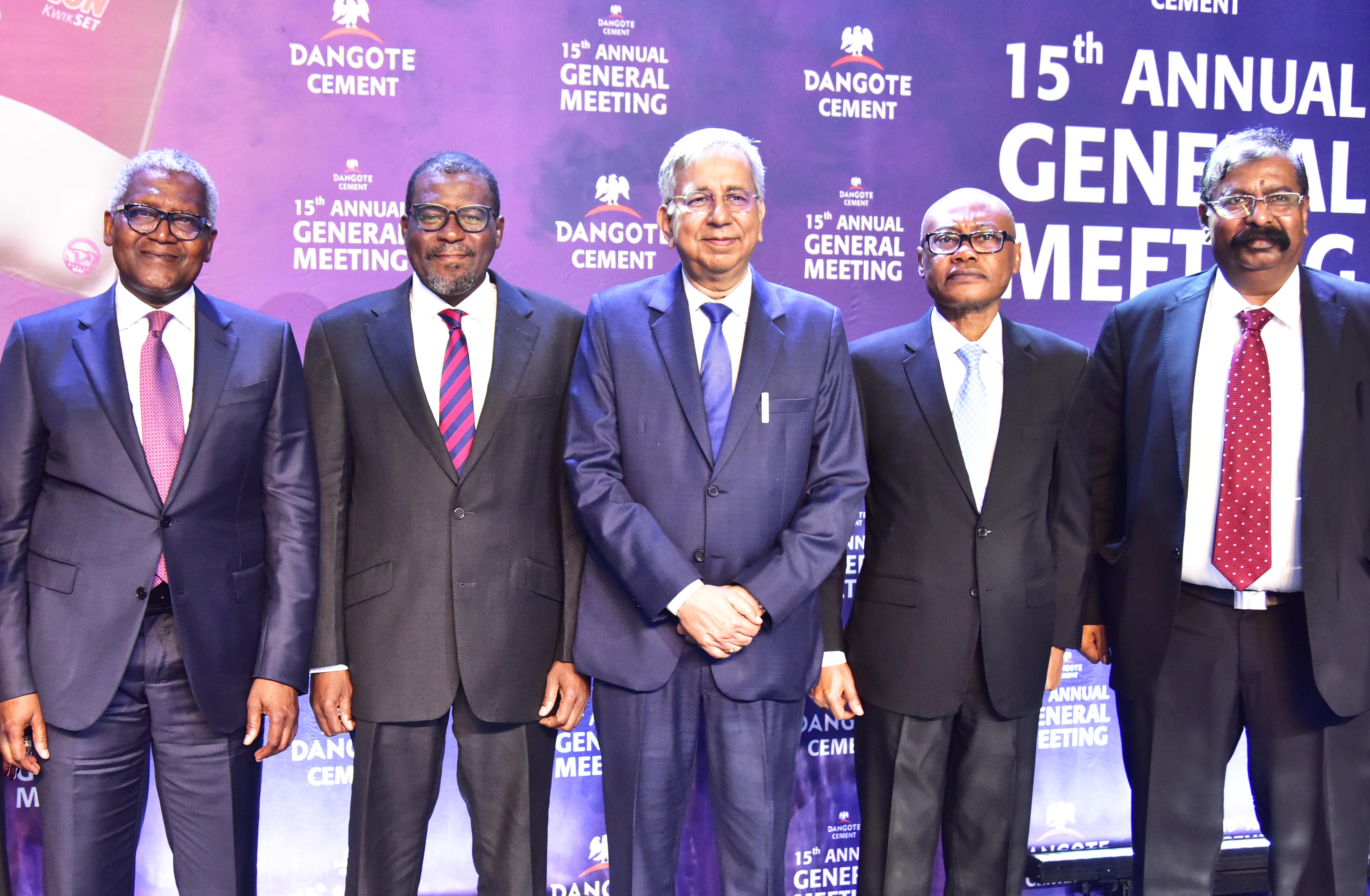
The Dangote Cement Plc (DCP) has achieved a ‘B’ score in climate change and water security disclosures according to the recently released 2024 Carbon Disclosure Project (CDP) results.
The CDP is the world’s largest, most comprehensive dataset on environmental action which empowers investors, companies, cities, and national and regional governments to make earth-positive decisions.
It was gathered that Dangote Cement has disclosed its environmental practices annually through the CDP since 2018.
On its part, the CDP provides a voluntary framework for companies to report on Climate, Water Security, and Forests. It rigorously evaluates corporate environmental performance, assigning scores from A to D based on companies’ transparency, governance, and measurable actions towards sustainability. Following the release of company scores in February, Dangote Cement’s score on water security which was C was upgraded to B. Similarly, the company’s commitment to supporting a climate resilient future was also demonstrated in its climate change score of B in 2024.
ALSO READ: ADF Spreads Palliatives To 10 States
On the new rating, Managing Director/Chief Executive, Dangote Cement, Arvind Pathak, said, “Dangote Cement leads in Africa as one of few businesses in six states and regions of Africa to disclose through CDP.”
He further stated that “the 2024 score is an outcome of ongoing efforts to reduce our carbon footprint, accelerate climate action and promote sustainability across our business and its value chain.”
On his part, the Head, Sustainability, Dangote Cement, Dr. Igazeuma Okoroba, expressed gratitude to all stakeholders who aligned with the Group’s Environmental, Social, and Governance (ESG) strategy overseen by the company’s Board which supported the achievement of an improved rating this year.
She asserted that “this year’s results are evidence that our contribution to create a world where people, planet and profit are truly balanced is paying off.”
Affirming the company’s commitment to decarbonisation, Dr Igazeuma stated that “Although this year’s score demonstrates our transparency on sustainability, DCP’s goal is to go beyond disclosure and take meaningful action through tangible solutions, innovations, and projects to close the gap between ambition and reality.”
Dangote Cement Plc is sub-Saharan Africa’s largest cement producer with an installed capacity of 45.6Mta across 10 African countries and operates a fully integrated “quarry-to customer” business with activities in manufacturing, sales, and distribution of cement. The company is on track to meet its decarbonisation targets through energy efficiency measures, adoption of supplementary cement materials, carbon offsets and other sustainable practices.



